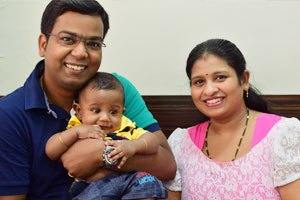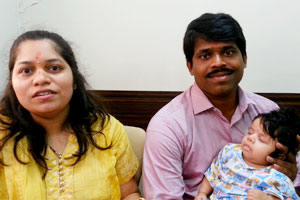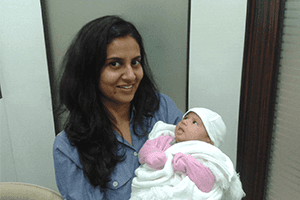Welcome, aspiring parents! Are you dreaming of seeing those two unmistakable lines on a pregnancy test? Perhaps you’ve been charting, planning, and waiting with bated breath, hoping that this will be the month your family starts to grow. You’re not alone on this journey. Countless couples and individuals are yearning to add the pitter-patter of tiny feet to their lives.
Take the First Step Towards Your Dream of Parenthood with Welling Infertility
If you’ve been facing hurdles on your path to becoming a parent, know that hope and help are just around the corner. At Welling Infertility, we understand the emotional rollercoaster that comes with trying to conceive. It’s why we’ve dedicated ourselves to offering comprehensive, specialized Homeopathy treatments designed to tackle the root cause of infertility for both men and women. You’re not just another case to us; you’re a future parent, and we’re committed to helping you realize your dream of natural pregnancy.
Why choose Welling Infertility? With a track record of helping couples from over 108 countries, our approach is tailor-made, focusing on the unique needs of each individual or couple. Don’t let past disappointments hold you back. Whether it’s the aftermath of failed IVF cycles or the confusion of where to turn next, we’re here for you with cost-effective, gentle, and non-hormonal solutions.
Dive into a Journey of Hope and Healing
Embrace a Natural Path to Parenthood: Our success speaks volumes, with up to 65% of our patients experiencing the joy of pregnancy after just the first 6-month treatment cycle. Age is but a number, and with our Homeopathy Assisted Reproduction Therapy, your chances of natural conception are brighter than ever.
Connect with Our Specialists: Our team of compassionate specialists is ready to evaluate your situation and guide you towards the best course of action. We believe in informed choices and transparent dialogues, ensuring you feel supported at every step.
Your Next Step is Clear
Starting your journey with Welling Infertility couldn’t be simpler. Visit our website, explore our success stories, and schedule your initial consultation today. It’s time to move beyond the uncertainty and disappointment. Let’s embrace hope as we work together towards fulfilling your deepest desire to become a parent.
Connect with Welling Infertility Now – Your dream of natural pregnancy is closer than you think. Start your transformative journey with us today.
Timing intercourse around ovulation
Knowing when you ovulate is key to getting pregnant. The fertile window spans about 6 days – the 5 days before ovulation and the day of ovulation itself. Sperm can survive for 3-5 days while the egg only lives for 12-24 hours after ovulation. So to maximize your chances, you want to have sex in the few days leading up to and on the day of ovulation.
There are a few ways to track ovulation:
-
Cervical mucus: As you approach ovulation, cervical mucus becomes more slippery, clear, and stretchy – like egg whites. This fertile-quality mucus helps sperm survive and swim. Check mucus texture and appearance daily.
-
Basal body temperature: Your basal body temp spikes 0.4-1°F after ovulation due to increased progesterone. Take your temperature first thing in the morning before moving around. Chart temps to detect the shift that signals ovulation occurred.
-
Ovulation predictor kits (OPKs): OPKs detect the luteinizing hormone (LH) surge 24-36 hours before ovulation. The kits analyze urine or saliva to identify your 2 most fertile days.
-
Ovulation pain: Some women experience mild ovulation cramps or pain when the follicle ruptures to release the egg. It typically only lasts a few minutes to hours.
-
Apps: Fertility apps like Flo use your cycle data to estimate your fertile days. But they aren’t as accurate as tracking ovulation signs yourself.
Try combining a couple methods like cervical mucus and OPKs to better predict and confirm ovulation. Have sex every other day during your fertile window to optimize timing.
Have sex every other day during fertile window
To get pregnant, it’s important to have sex regularly during your fertile window. This is the 5-6 days leading up to and including the day of ovulation.
Having sex every other day during this time ensures that fresh, healthy sperm are regularly available to fertilize the egg once ovulation occurs.
Sperm can survive inside a woman’s body for up to 5 days. So even if you have sex a few days before ovulation, the sperm will still be alive when the egg is released.
By having sex every other day, you are keeping a constant supply of sperm in the reproductive tract. This maximizes the chances that viable sperm will be there to meet the egg.
Some couples think they need to have sex every single day during the fertile window. But this isn’t necessary and may be counterproductive. Ejaculating daily can actually decrease sperm count and motility.
The every-other-day approach helps ensure the man’s sperm count stays high during peak fertility. So make a plan to be intimate on a regular basis as ovulation nears – but give his sperm a chance to fully replenish by taking a day off in between.
Adopt a fertility-boosting diet
What you eat can have a big impact on your chances of getting pregnant. Focus on eating a diet full of nutrients, antioxidants, healthy fats, and lean protein. Some foods to emphasize include:
-
Fruits and vegetables – Especially dark, leafy greens and berries. These provide antioxidants to help egg quality.
-
Whole grains – Choose whole wheat bread, oats, brown rice, quinoa. These complex carbs stabilize blood sugar.
-
Nuts and seeds – Great sources of protein and healthy fats like omega-3s. Try walnuts, almonds, chia and flax seeds.
-
Legumes – Beans, lentils, chickpeas give a boost of plant-based protein and fiber.
-
Lean protein – Salmon, chicken, turkey and other lean meats provide protein, iron and B vitamins.
-
Full fat dairy – Milk, yogurt and cheese contain calcium, protein and vitamins. Go for full fat options.
-
Avocados – A great source of monounsaturated fats to regulate hormones.
-
Water – Stay hydrated by drinking plenty of water each day. Dehydration can impact CM.
Eating a balanced diet with plenty of fertility boosting foods can help create the optimal environment for conception. Focus on getting nutrients from whole food sources rather than supplements when possible.
Take prenatal vitamins
Taking a prenatal vitamin can help ensure your body has the necessary nutrients to support conception and a healthy pregnancy. Some of the key nutrients to focus on include:
Folic Acid
Folic acid (also known as folate) is crucial for preventing neural tube defects in babies. It aids in proper development of the brain and spine. The recommended dose is at least 400 mcg per day, even before pregnancy. Look for a prenatal vitamin that contains folic acid.
Iron
Iron helps prevent anemia and helps both mom and baby’s blood carry oxygen. Requirements increase during pregnancy, so make sure your prenatal contains iron. Around 27 mg per day is typically recommended.
Calcium
Calcium is needed for building baby’s bones and teeth. If you don’t get enough from your diet, your baby will draw what it needs from your bones. Look for 500-1000 mg of calcium in your prenatal vitamin.
Starting a prenatal vitamin with these key nutrients at least 1-2 months before conception can help ensure your body is ready to nourish a growing baby. Work with your doctor to find the right vitamin and dose for your needs. Proper nutrition supports a healthy pregnancy.
Reduce Stress
Stress can significantly impact fertility and make it harder to get pregnant. When you’re stressed, your body produces more of the hormone cortisol. High cortisol levels can disrupt hormones and ovulation, making it difficult for an egg to be released and become fertilized.
To help manage stress:
-
Make time for relaxing activities like yoga, meditation, reading, or taking a bath. Even 10-15 minutes per day can make a difference.
-
Get regular exercise, which helps relieve tension. Go for a walk, do some stretching, or take an exercise class.
-
Talk to your partner or friend about what’s causing you stress. Sometimes just vocalizing it can help.
-
Set boundaries and don’t take on too much. Learn to say no to extra obligations.
-
Take breaks during the workday to clear your mind, even if just stepping outside for a few minutes.
-
Consider seeing a therapist if stress is overwhelming. Talk therapy can give coping mechanisms.
-
Use relaxation techniques like deep breathing, visualization, or progressive muscle relaxation.
Reducing stress takes practice, but is key for conception. When your body is under chronic stress, it’s in survival mode rather than baby-making mode. Focus on lowering stress levels for the best chances of getting pregnant.
Limit Caffeine
Caffeine consumption has been associated with reduced fertility in both men and women. Caffeine is found in coffee, tea, soda, energy drinks, and chocolate.
Studies show that drinking more than 1-2 cups of coffee per day is linked to decreased fertility due to:
-
Disrupted hormone levels – Caffeine may interfere with the female hormones estrogen and progesterone, which are essential for getting pregnant. It may also impact testosterone levels in men.
-
Higher risk of miscarriage – Consuming over 200mg caffeine daily (around 2 cups of coffee) increases the chances of miscarriage.
-
Poor egg quality – Caffeine can damage eggs and prevent fertilization. It may also inhibit embryo development.
-
Delayed conception – Drinking 3 or more cups of coffee per day has been associated with a longer time to get pregnant.
To boost your fertility, limit caffeine intake to less than 200mg per day. Substitute coffee and soda with herbal teas, water, or decaf drinks. Going “cold turkey” on caffeine can also help improve conception chances for that cycle.
Exercise Moderately
Getting regular exercise is important for overall health and can benefit fertility as well. Light to moderate exercise helps maintain a healthy body weight, reduces stress, and improves circulation – all factors that can increase the chances of conception.
Aim for about 30 minutes per day of moderate exercise like walking, swimming, cycling, or yoga. Make sure not to overdo it though, as too much high intensity exercise can disrupt ovulation and menstrual cycles. Studies show that women who exercise strenuously for more than 5 hours per week have higher rates of infertility.
The key is balance – get active enough to reap the benefits, but don’t exhaust yourself or train excessively if trying to conceive. Listen to your body and reduce your workout intensity if your cycles become irregular. With the right amount of moderate activity, exercise can help prime your body for pregnancy.
Avoid harmful toxins
Exposure to toxic chemicals can negatively impact fertility in both men and women. When trying to get pregnant, it’s advisable to limit contact with harmful chemicals as much as possible.
Limit exposure to chemicals in foods – Eat organic produce when possible to avoid pesticides. Wash produce thoroughly. Limit intake of fish high in mercury. Avoid processed and packaged foods, which can contain phthalates and BPA from plastic packaging.
Use natural cosmetics and toiletries – Conventional body care products often contain parabens, phthalates, and other chemicals linked to fertility issues. Opt for natural, organic products free of these ingredients. Look for “clean beauty” brands.
Use green cleaning supplies – Household cleaners contain many strong chemicals and emit VOCs into the air. Replace conventional cleaners with eco-friendly, non-toxic alternatives. Open windows regularly to circulate fresh air. Consider making your own cleaners from simple ingredients like vinegar, baking soda and lemon.
Purify indoor air – Indoor air is often more polluted than outdoor air. Use houseplants to filter the air. Install HEPA air purifiers. Vacuum and dust regularly using a HEPA filter vacuum. Avoid buying new furnishings and building materials which off-gas VOCs.
Limiting chemical exposures supports a healthy reproductive system and can boost your chances of conception.
Don’t smoke or drink alcohol
Smoking reduces fertility in both men and women. The toxins in cigarette smoke can damage eggs and sperm, making it harder to conceive. Smoking also increases the risk of miscarriage and ectopic pregnancy.
Secondhand smoke exposure has similar risks. If your partner smokes, encourage them to quit or at least not smoke around you.
Drinking alcohol, even in moderation, can also make it harder to conceive. Heavy drinking is especially damaging, leading to irregular ovulation, poor egg quality, and abnormal sperm.
Alcohol consumption during pregnancy significantly increases the risk of miscarriage and birth defects. It’s best to avoid alcohol entirely while trying to get pregnant and throughout pregnancy.
If giving up smoking or drinking is challenging, seek support. Your doctor can connect you with resources to help you quit. It’s worthwhile for your fertility and your future baby’s health.
See a doctor if needed
If you are 35 years or older, or have been trying to conceive for 6 months with no success, it’s a good idea to make an appointment with a fertility doctor. Age is one of the most important factors when it comes to fertility, and a woman’s chances of conceiving naturally decline significantly after age 35.
Seeing a fertility specialist allows you to get tested for any underlying issues that may be preventing pregnancy. Common tests include hormone level checks, ovulation tests, ultrasounds, and semen analysis for your partner. These tests can help pinpoint problems like ovulation issues, blocked fallopian tubes, endometriosis, or low sperm count.
Based on test results, your doctor may prescribe fertility drugs like Clomid or recommend procedures like IUI (intrauterine insemination) to improve your chances. If you have been trying for a long time without success, IVF (in vitro fertilization) may be an option.
The key is not to wait too long before seeing a specialist. It’s better to get tested sooner rather than later. A fertility doctor can develop a treatment plan tailored to your particular fertility issues. With medical guidance, you may be able to get pregnant faster than trying for months on your own.







